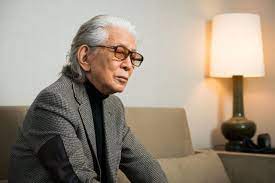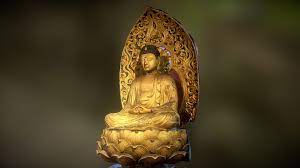
私たちが「自力」だと思っていることが、実は「他力」なのではないか?――
バイリンガルで、どうぞ。
Is what we regard as “Self-Power” actually “Other Power”? ――more to come
both in English and in Japanese.
When I used to explain Other Power, I often used the example of a yacht.
A yacht without an engine cannot sail when there is absolutely no wind.
If there’s even the slightest breeze, it can sail, but with none, it’s useless.
It doesn’t make any difference what you do to the yacht. Without the wind of
Other Power, our daily lives, too, cannot be made to sail along.
他力ということを説明する際に、私はときどきヨットの話をすることがありました。
エンジンのついていないヨットは、まったくの無風状態であれば走ることができない。
少しでも風があればなんとかなるでしょうが、そよとも吹かなければお手上げです。
ヨットの上で、どんなにがんばっても無駄です。他力の風が吹かなければ、私たちの
日常も、本当は思うとおりにはいかないものです。
But even the wind blows, it may catch you napping if your sails are furled,
and you’ll miss your chance to get moving. That’s why it’s important to make an effort
to remain alert, no matter how long the doldrums persist, and watch the sky
and wait patiently for the wind’ arrival.
しかし、風が吹いてきたときに、ヨットの帆をおろして居眠りをしていたのでは、走る
機会も逃してしまいます。ですから、無風状態がどれほど続いていても、じっと
我慢し、注意ぶかく風の気配を待ち、空模様を眺めて、風を待つ努力は必要なわけ
です。
If you think of this effort as Self-Power, then, as my young critic noted,
a certain degree of Self=Power is necessary. However, recently I have become
convinced that what appears to be the effort of Self=Power in this scenario is actually
the activity of Other Power.
その努力を〈自力〉と考えれば、若い批評家が言うように、ある程度の自力も必要
ということになる。しかし、最近やっと納得できるようになってきたのですが、じつは
その〈自力〉と見える努力も、本当は〈他力〉の働きではないのでしょうか。
It is nothing but Other Power that gives the sailor the power to make the effort
to wait for the wind without giving up, and the alertness to be prepared for its arrival;
it also gives him the unbending faith that eventually the wind will blow.
無風にめげず、じっと風を待ち、いつでも風に応ずる緊張感、その努力をヨットマンに
あたえ、そして「いつか風は吹く」というくじけぬ信念を持続させるもの、それこそ
まさに〈他力〉の働きの本質でしょう。
The essence of the working of Other Power is the spontaneous, wondrous force
that gives us the will to act, that makes us “Do what man can do and
then wait for heaven’s will,” as the saying goes. I am purposely reading
“Do what man can do and then wait for heaven’s will” as “Doing what man can do
is heaven’s will,” and for me “heaven’s will” is Other Power. Deciding to do whatever
it is possible to do and then carrying out that decision――this is not possible
without a push from behind by Other Power. When you realize this, any thought
that we are doing things by our Self-Power seems positively comic.
「人事をつくして天命を待つ」という言葉を、「人事をつくすは、これ天命なり」と、
私は勝手な読み方をしています。〈天命〉を〈他力〉の意味に受けとめるのです。
死にもの狂いで人事をつくそうと決意し、それをやりとげる。それこそ〈他力〉の
後押しがなければできないことです。そう考えれば、自分が〈自力〉にこだわるのが
滑稽にさえ思えてきたのでした。
My second anthology is published now.
Please order it from Amazon if you are interested in.
私の2番目の詩集が、現在、出版されています。
興味のある方は、アマゾンでご購入をお願いいたします。
■プライバシー・ポリシー
当ブログは、Amazon.co.jpを宣伝しリンクすることによってサイトが紹介料を獲得
できる手段を提供することを目的に設定されたアフィリエイト宣伝プログラムである、
Amazonアソシエイト・プログラムの参加者です。このプログラムにおいて、
第三者がコンテンツおよび宣伝を提供し、ユーザーからの情報を収集し、訪問者の
ブラウザーにクッキーを設定することがあります。プログラムにおいて情報の
扱いについてはAmazon.co.jpプライバシー規約をご確認ください。











